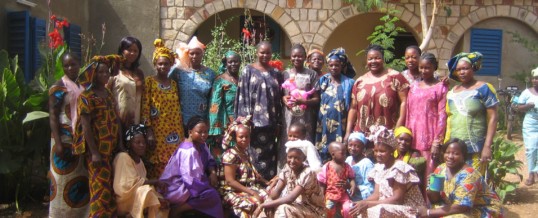Par Mario Renaud, Robert Letendre, Nicole St-Martin, Nigel Martin, Yves Pétillon and Pierre Véronneau : McLeod Group guest blog : 06-04-2021
The Canadian International Development Agency (CIDA) was created in 1968 to help developing countries improve their social and economic situation in the context of decolonization and independence. In the following years, CIDA and a large number of Canadian organizations were able to build up a solid body of expertise to meet the evolving needs of developing countries. In 2013, the Harper government merged CIDA with the then Department of Foreign Affairs and International Trade (DFAIT). This decision seems to have done little to improve the management of Canada’s international assistance, now worth over $6 billion per year.
In 2018, the Organisation for Economic Co-operation and Development (OECD) criticized the overly centralized and bureaucratic nature of Canada’s aid program and noted that staff did not always have access to the professional and technical resources to implement the new feminist aid policy adopted in 2017. The peer review also found a lack of plans for aid effectiveness, for recipient country engagement and for building inclusive partnerships. Finally, the OECD concluded that there was little improvement in coherence between the new department’s development assistance, diplomacy and trade policies, which was the main reason given for the merger.
After the merger, former CIDA staff found themselves in an environment dominated by foreign policy officials. According to Global Affairs Canada (GAC) reports, security and peace, multilateral aid and global issues have received more investment since 2014 than traditional bilateral (country-to-country) aid. Aid is becoming increasingly politicized. For example, Ukraine has received nearly $800 million in Canadian funds over the past six years. The politicization and multilateralization of Canadian aid also risks putting a growing number of Canadian development organizations out of the running for GAC funding, even though they have a good reputation abroad. It seems that it is easier for GAC to transfer funds to multilateral agencies than develop programs with local and Canadian partners.
International cooperation and assistance are needed more than ever in the post-pandemic context to help less fortunate countries face the many challenges of poverty reduction, climate change adaptation, support for democratic governance, equitable access to basic services and epidemic prevention. It is not simply a matter of compassion, charity or solidarity; it is in our own interest to live in a more just, equitable, secure and prosperous world.
Canada’s international assistance program, because of its size and complexity, must be managed by people with extensive experience and knowledge of sustainable, just and equitable development in an interdependent context. Yet, virtually no senior GAC staff responsible for development assistance programs currently has the experience and knowledge to implement them.
The situation in the field has also deteriorated significantly, with fewer GAC staff members interested in overseas assignments, as such experience is decreasingly valued inside the Department. In addition, the entire local infrastructure of technical and professional resources put in place over the years by CIDA to support the implementation of development programs has all but disappeared as a result of perverse regulatory requirements that don’t take into account the adaptations required to address poverty, strengthen human rights or combat climate change.
At headquarters, GAC staff members face many cumbersome bureaucratic processes that govern program and project management and partner relations. The ability to navigate “red tape” is considered more important than actual development experience. Finally, the technical and professional staff supporting policy development and program design and implementation has been reduced to a bare minimum.
The official development assistance budget has increased significantly since the Trudeau government took office. However, it has continued to decline to 0.26% of gross domestic product, ranking Canada 16th in the OECD. But GAC has fewer and fewer staff members with the depth of knowledge and experience required to effectively manage and implement Canada’s international assistance program.
This situation must be fixed if Canada is to regain its leadership in this area. Serious consideration should be given to the reconstitution of a dedicated and independent agency, staffed by experienced people and operating largely through inclusive partnership arrangements with partner countries and populations, as well as with international and Canadian organizations.
The authors are members of the Groupe de réflexion sur le développement international et la coopération (GREDIC). GREDIC was founded in 2012 and is made up of former senior managers with development organizations and CIDA. This blog was originally published in French in La Presse. Photograph: Anti-FGM activists in Bandiagara, Mali.


Recent Comments